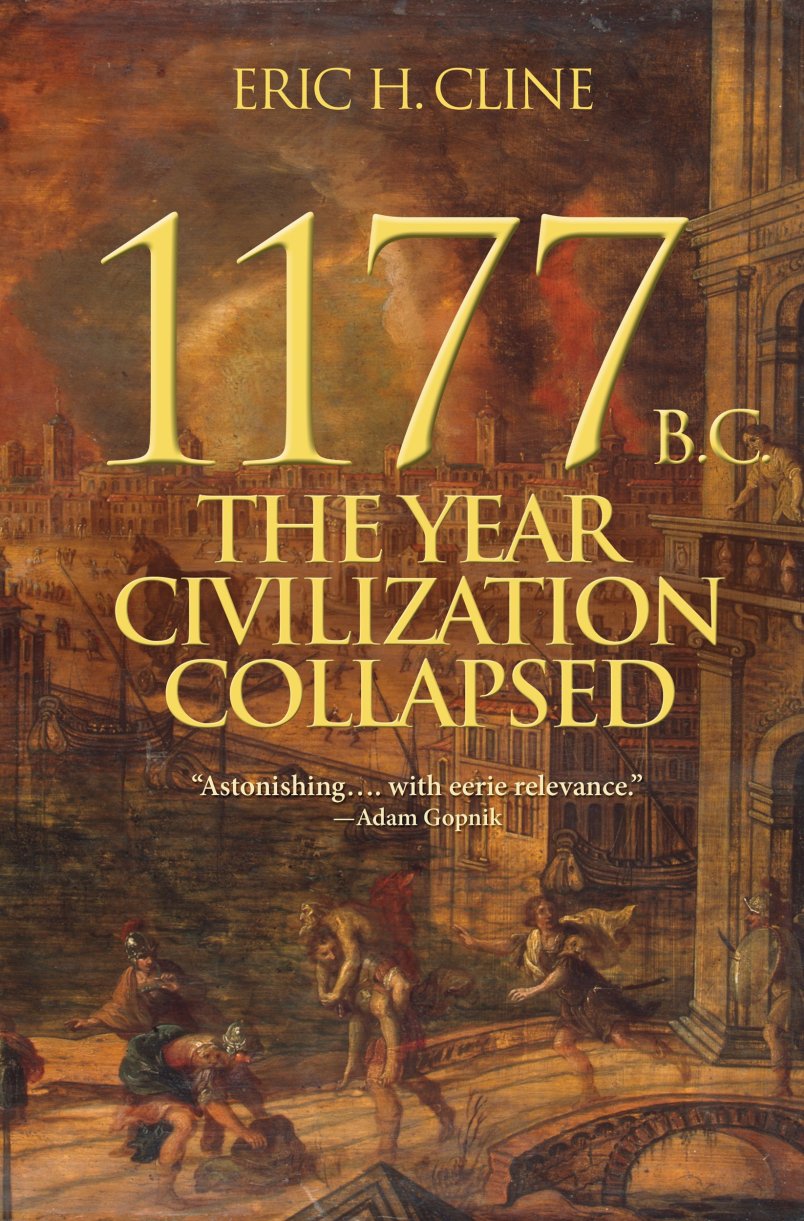We’re in the thick of election coverage and on the publishing side of the organization planning coverage for the remainder of 2016 and beyond. But I wanted to take a moment to let you know about another book I read recently which I can heartily recommend. It’s called 1177 BC: The Year Civilization Collapsed.
The topic connects up with a number of historical questions that have long interested me. It is also the backdrop of another book I recently discussed on the origins of the biblical Israelites, since the Israelites emerge in the historical record during and just after the collapse that is the subject of this book.
We sometimes think of history as linear in nature, with increasingly technologically advanced, economically integrated civilizations advancing in succession over centuries and millennia. But of course it has seldom really worked that way. As a number of historians and historical geographers have explored in recent years, civilizational collapse is a recurrent feature of human history. As much as the collapse of the Romand Empire to be followed by the ‘Dark Ages’ in Europe is a narrative that has been rightly called into question by historians in recent decades, Western Europe did experience a profound decline in wealth, material culture and economic integration as well as in more subjective measures of culture.
So what happened in 1177 BC?
Before around 1200 BC what we would now call the eastern Mediterranean had a rich and highly integrated state system with a good deal of trade connecting what we would now call Greece, Turkey, Lebanon, Israel, Syria, Egypt and North Africa and with other parts of what are now the Arab Middle East further inland. The Hittites were in Anatolia (Turkey), the Mycenaean civilization prospered in Greece, Egypt was where it’s always been in Egypt, the Canaanite civilization dominated the Levantine coast.
Then in a fairly short period most if not all the great cities of the era were destroyed, in many cases never to be reconstituted. Military attacks seem to be behind most of the destructions. But it’s not always clear. Many of the states and cultures of the era simply vanished, at least in their high/literate form and the economic integration of the region declined dramatically.
What happened is relatively well-documented. Why it happened or just how it happened is much, much less clear. One constant theme of inquiry is tied to references to the so-called Sea Peoples who may or may not have been responsible for some or all of the destructions. They are generally believed to have come from what is now Greece or the greater Aegean and attacked or settled at various points further east. It is generally understood that the people history and the Bible calls the Philistines, in the southern coastal part of what is now Israel, were some of these Sea Peoples who came from somewhere in the Aegean. But whether they were the cause of the civilizational collapse or just more people swept up in the civilizational catastrophe is not clear. It’s also not entirely clear whether these settlers of Philistia (yes, the origin of our word “Palestine” and “Palestians”) were really invaders – something like an ancient version of the Vikings of the Dark Ages – of simply immigrants who settled down more or less peacefully with the existing population.
I never finish most of the books I start reading. They can’t hold my attention. I don’t like the author’s style, focus. They don’t click. For whatever reason the first time I tried reading this book it didn’t click for me. I can’t figure out why because when I returned to it about six weeks ago I was enthralled. Like most history rooted in archeology it is as much a detective story as a narrative history and author Eric Cline does not come to a definitive conclusion about what happened in the years just after 1200 BC. The evidence just doesn’t yield clear conclusions beyond the likelihood that several factors (climate, war, a period of unusually intense earthquake activity) came together at once that proved too much for the economic, governmental and civilizational structures of the Late Iron Age Mediterranean to cope with. Still, if you like quality popular history, if the distant past intrigues or fascinates you, I definitely recommend this book.
You can get it here.






